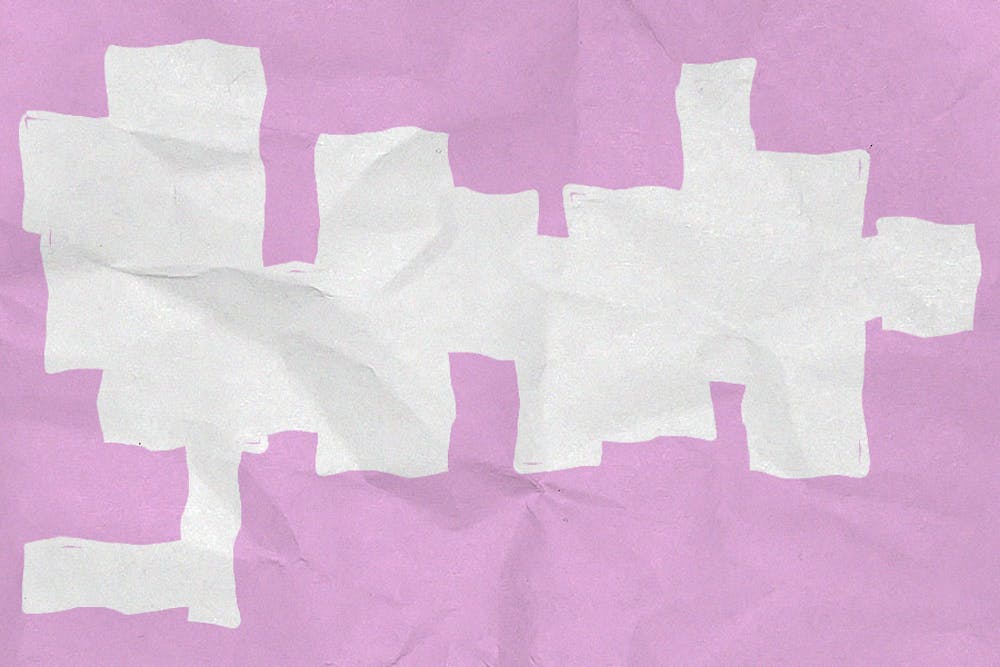I’ve always had a fear of heavy, devastating loss. It’s not irrational by any means to be afraid of losing the ones closest to you, but it’s become an overwhelming staple of my everyday life. I didn’t stop sleeping in my parents’ bed until I turned 11, and I still spiral over every missed phone call or unanswered text message. When I was younger, I spent hours in bed meticulously going over what could happen if my close friends or siblings passed away.
As I have aged and adopted coping mechanisms for my bouts of anxiety, I believed I had found a safe haven. I started sleeping with classic literature audiobooks crooning in my ears and repeatedly checked my phone notifications between classes and meetings. Every second of my day was dedicated towards keeping my brain on track, away from plunging into the abyss of distressing thoughts. During the initial COVID–19 lockdown, I spent two semesters at home in California, where I got to avoid breakdowns catalyzed by the overstimulation of college life. Most importantly, I got to see only my family, the pieces of my life I couldn’t bear to lose. It was almost shameful, using the pandemic as an excuse to enjoy isolation when the rest of the world was grieving.
I felt all patched up as an entirely new version of myself when I came back to Penn in January 2021. This was the year for me to navigate my anxieties, to spend time alone and indulge in my writing. I didn’t want to tarnish my progress by falling back into my old habits of nail–biting and staring at the wall imagining the worst that could happen. A spike in COVID–19 cases meant I could get away with distancing myself from everyone, not realizing that my fear of loss was stifling my desire to form deep relationships with those around me. Worrying about my family was already exhausting; allowing others to get close to me would be catastrophic. I trudged through the dozens of texts from people asking me where I’ve been, to catch up, why I wasn’t responding to anyone. I didn’t know how to explain in a blue iMessage bubble that the only way I could be happy was to abandon anything worth losing.
One April morning, I woke up with a chapter of Dostoevsky's Notes From Underground still playing in my headphones. I checked my phone to read my notifications and found out that my closest cousin passed away in a train accident. His older sister had posted a photo of them with the news online. I had talked to him two days prior, begging him to change his trip to California to overlap with my summer vacation. I called my father who could hardly choke out what happened between dry sobs, and then I had to call my sister to tell her the same news through my own tears. I didn’t leave my room for two weeks.
You cannot prepare for loss. You cannot run through the routine of healing and gather materials in a bunker until it’s safe to come out. After the initial shock wore off, I folded into myself without speaking much about it to my friends. I couldn’t talk to anyone about it, because I didn’t know how to. The frustration of being unable to put my sadness and grief into sentences was overbearing, and I stopped writing in my journal for weeks. All I could do was think about how life and love meant suffering and the melodrama of it all made it even worse.
Shutting myself off from everyone to avoid losing them made dealing with the pain of loss nearly impossible. I resented myself for being unable to confide in people, even though I desperately needed any form of human interaction to remind me I would be okay. My anxiety became unavoidable, and I fell back into questioning who was going to leave me next. I considered booking a plane ticket back home for the rest of the semester without telling anyone, retreating into the safe haven that could no longer serve me.
A few days after the news I got a text from my older brother: “See your friends, don’t tell yourself you need to be alone, do what you need to do. Much love.” Seven months later, I can understand that the only way I got through my pain was through my close friends gently prodding me to see them. I hate admitting when my older siblings are right, and I still don’t know what I needed to do, but gradually the feeling of being with people who care about me washed away the fear of losing who I cared about.
I’m not sure to this day if I’ve healed from the death in the family. When my father shows me old wedding photos I run to my room so he cannot see me cry, knowing someday I won’t have photos of my cousin to share with my kids. I don’t know how to grieve over memories that will never be made, but I’m trying, just as I’m learning to sleep in silence. Life is only truly bearable if you have others to share the burden of it. I still spend some days underground, too paralyzed by my anxiety to make an effort. But I'm learning to come up for air every once in a while.







